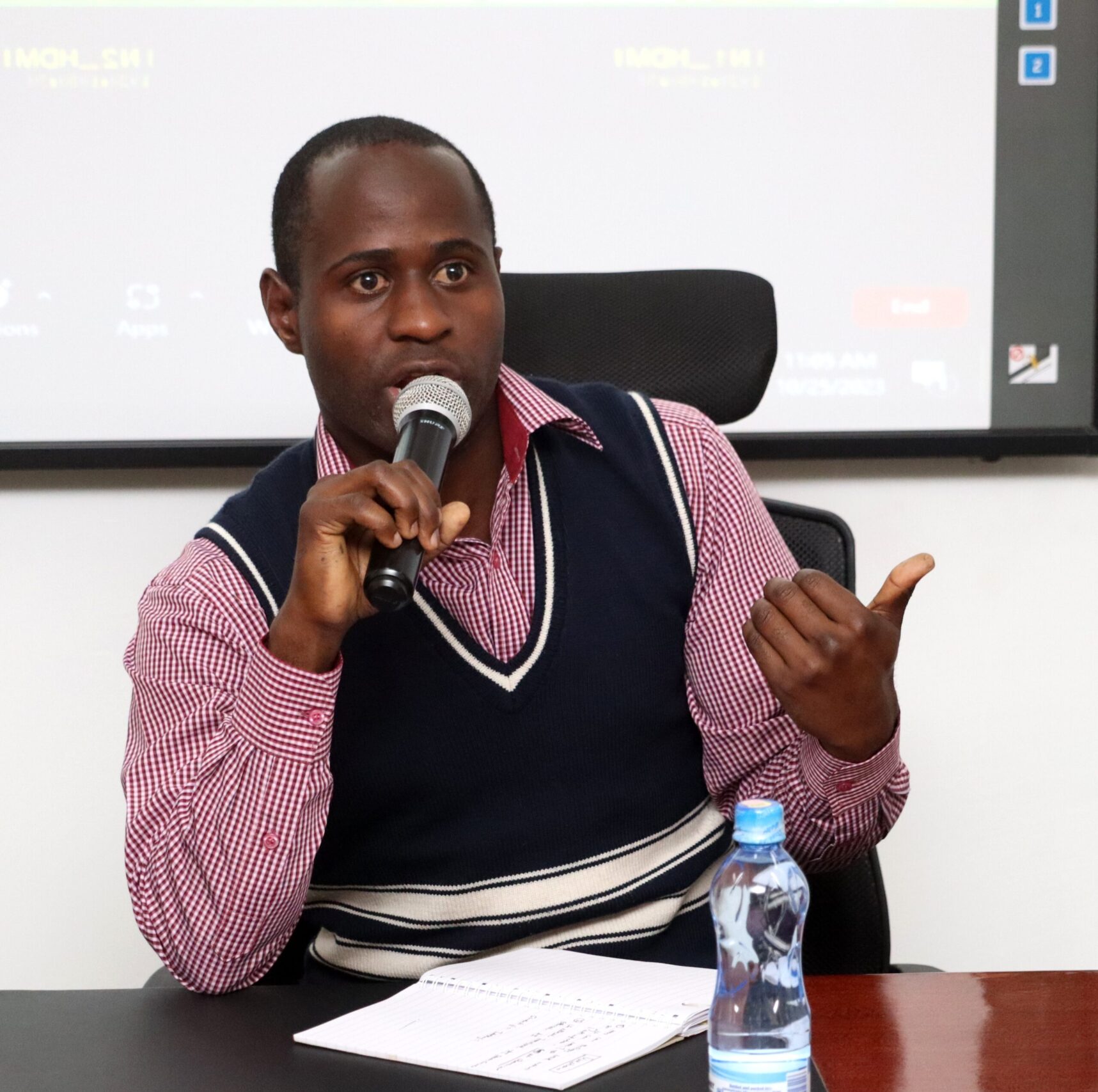
HUC 9th Student Led Conference
Hekima University College students-led conference is an opportunity for students to showcase some of their academic research work providing a platform for engaging with peers in other Institutions in Nairobi.
According to the Dean of Peace Studies and International Relations (HIPSIR), Rev. Dr. Elisee Rutagambwa, SJ, it is important for students to come together from the spectrum of their diverse locations and disciplines to share knowledge because no one can stand alone and acquire knowledge.
“The search for knowledge has always been and remains a collegial enterprise. We build on the legacy of others: peers, elders, forefathers. And, as we grow in knowledge and wisdom, we are required to make our own contribution not only to our contemporaries, but also to generations to come,” Dr. Rutagambwa expressed in his opening remarks adding that the practice of sharing knowledge is only honoring a long tradition that has to live on.
“In Africa, in particular, this is a generational duty that we inherited from elders and owe to those who will come after us.”
He noted that the common effort exhibited during the research week and particularly in this student-led conference is not only an opportunity for HUC students to expand their knowledge and work for academic excellence, but also a wakeup-call to intellectual and moral responsibility. This in turn raises awareness and enlightens our people over the critical issues facing our present world.
The keynote speaker for this year’s students-led conference Prof. Raphael Munavu, (emeritus) in the department of chemistry at the University of Nairobi challenged the participants to ensure that the knowledge they gain is utilized for the good of society.
“When you learn and gain knowledge yet you don’t utilize it, then your learning is not useful. When you light a lamp, you don’t hide it but rather put it up so that you can spread light everywhere. This is so with learning; it is not just so that we become learned, you don’t learn to only help yourself, but rather to also help impact society,” said Prof. Munavu who is also a former vice-chancellor of Moi University.
This year’s conference saw more students from Hekima presenting their research papers on various topics which elicited interesting debates and conversations among the participants. Those who presented included the following:
In the first panel:
Joel Kouam, a third-year JST student sought to show why it is important to put in place an ethical framework to accompany the development of AI and, subsequently, how such a framework might inform theological discourse. He views the ethics of risk pace Andrea Vucini, as providing a crucible for a sound theological engagement with AI, one that adequately responds to the challenge of defining the right role for AI systems.
Filex Nimanya, a second-year JST student highlighted some of the challenges posed by AI to key tenets of revealed religions and ways in which theological training needs to adapt to respond to these challenges.
Robert Ngojo Kangethe, a third-year JST student denounced the anthropological fear that so often undergirds discussions about AI in church circles. He sees this fear as the main reason why the Church is unable to follow the pace of rapid technological developments that are currently transforming our way of life.
In the second panel:
Betty Too, a second-year HIPSIR student called the audience’s attention to the role of gender in conflict management and peacebuilding, spotlighting the work done by the Women’s Peace Table in promoting peace and reconciliation in areas affected by the Post-Election Violence that gripped Kenya in 2007-2008.
Barnet Chokani, a third-year JST student sought to make the case that a judicious use of technology could pave the way for an era of enduring peace and stability in East Africa by addressing pressing challenges such as limited access to healthcare and unequal educational opportunities.
Innocent Mpoze offered a reading of the repetitive conflicts that have plagued the Eastern regions of the Democratic Republic of Congo from the perspective of Achille Mbembe’s notion of necropolitics and Kä Mana’s traumatic identities. He advocates for an open border policy as a way of creating the conditions for ending the vicious cycle that has facilitated the perpetuation of wars in the Eastern regions of DRC
In the third Panel
Guidione Frederico Macamo, a third-year JST student underscored what he construed as the intrinsic relationship between Liturgy as a ‘public service’ and synodality as a place where everyone`s voice can be heard. He highlighted ways in which the liturgy can foster a sense of togetherness thereby making it a privileged space for the expression of the spirit of synodality.
Sr. Benta Akech Odundo invited the participants to take their place in the Synodal process, rooted in values drawn from African spiritual traditions, while Sr. Veliwe Nkuzo underscored the role which the Catholic Church’s synodal journey — with its emphasis on dialogue and discernment — can play in the promotion of peace and stability
Ricardo Nogueiro, SJ, a third-year JST student pondered the question of whether AI is a disguised anthropology. Can we consider AI as an extension of humanity and therefore a disguised anthropology? — a limited anthropology? Ricardo concluded that AI belongs to a different category, It is not a ‘disguised anthropology’… it is android intelligence.
Such were the conversations brought forward during this year’s student-led conference. As the conversations continue and as the students synthesize the rich knowledge gained during this year’s research week, undoubtedly they will be processing too the advice of the keynote speaker Prof. Munavu, that the need to be liberally educated, which means not just trained to be a specialist but rather to be able to make decisions that are not necessarily guided by what one has learned but on other disciplines as well, multi-disciplinary is highly critical.
By Pamela Adinda, Coordinator HUC Communications Department and International Office